I've been experimenting with writing to an external EEPROM using SPI and I've had mixed success. The data does get shifted out but in an opposite manner. The EEPROM requires a start bit and then an opcode which is essentially a 2-bit code for read, write and erase. Essentially the start bit and the opcode are combined into one byte. I'm creating a 32-bit unsigned int and then bit-shifting the values into it. When I transmit these I see that the actual data is being seen first and then the SB+opcode and then the memory address. How do I reverse this to see the opcode first then the memory address and then the actual data. As seen in the image below, the data is BCDE, SB+opcode is 07 and the memory address is 3F. The correct sequence should be 07, 3F and then BCDE (I think!).
Here is the code:
uint8_t mem_addr = 0x3F;
uint16_t data = 0xBCDE;
uint32_t write_package = (ERASE << 24 | mem_addr << 16 | data);
while (1)
{
/* USER CODE END WHILE */
/* USER CODE BEGIN 3 */
HAL_SPI_Transmit(&hspi1, &write_package, 2, HAL_MAX_DELAY);
HAL_Delay(10);
}
/* USER CODE END 3 */
